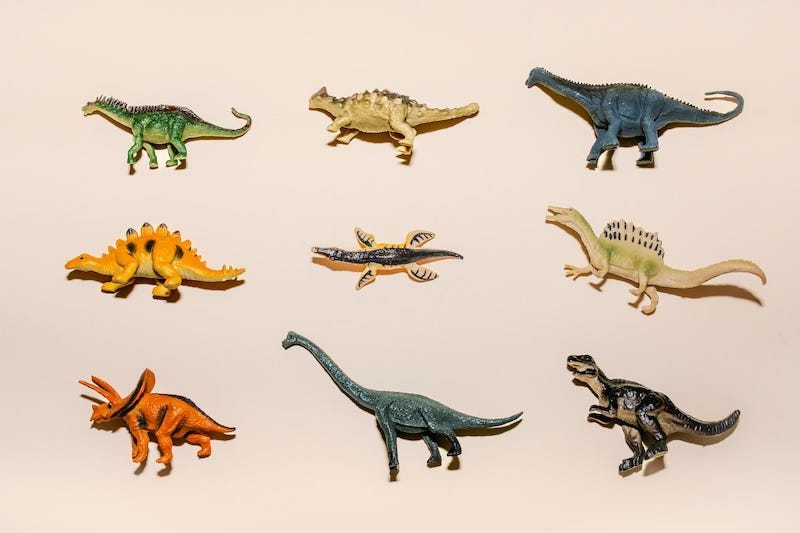The irony is not lost on me.
This spring, after giving a well-received presentation to one division of a large corporation, a new, unexpected opportunity suddenly appeared:
The exciting possibility of speaking at a new event in July, to a much bigger audience.
Even though the offer wasn’t fully solidified, inspired by the topic, I plunged into creating a talk I was genuinely excited about.
Alas — even though we’re discussing many new collaborations — almost as quickly as it arose, this speaking engagement evaporated.
It was decided that the event needed an internal perspective, something that could only come from one of their own employees who could speak directly to what was happening inside the business.
I.E, NOT me.
Already deep into research — even having crafted the start of what I thought was a rather witty slideshow — I’ve decided not to abandon the topic but to pursue it further.
What’s the irony?
I’m adapting something — including this August’s new meditation HERE — on the theme of Adapting.
Speaking of which …

This wasn’t in the original talk but I’ve also been thinking a lot about Kyle MacDonald’s One Red Paperclip project.
It’s the true story of how over a full year, he bartered a single red paperclip through a series of 14 increasingly valuable trades.
He traded the red paperclip for a fish-shaped pen, then that for a hand-sculpted doorknob.
Subsequent trades lead to a snowmobile and to a movie role, until he ultimately traded up to a house in Saskatchewan.
It’s a whimsical yet profound tale of creativity, persistence, and the power of unconventional thinking, in other words, of adaptation.

This past week, while proofing the journal based on the classic book The Science of Getting Rich which we’re releasing this fall, I also ran into my own unexpected challenge around adaptation.
Before I record the audiobook, I listened to several recordings to gain insights.
By far the most striking thing was that approximately 50% of the recordings kept the original text verbatim, while the other half boldly modernized its pronouns.
While the final sentence of the book begins “The men and womenwho practice the foregoing instructions will certainly get rich,” throughout most of his prose Wallace Wattles almost always uses only “man” or “men.”
Several notable recordings update the text to “people” or “humankind,” “his” to “theirs” etc.
Since the book was published in 1910 — ten years before women in the U.S. even had the right to vote — it’s hard to fault Wallace, especially because he does include both genders some of the time.
Nonetheless, before I step into the recording booth, I have to decide whether to stick with his original text or take a red pen and adapt it.

I had a different kind of editorial conversation this week with someone I don’t know but whose online work I admire.
In fact, in my daily draw of various oracle and synchronicity cards, I end up looking something up on their website pretty much every morning.
To set the stage: although if I have spinach between my teeth — even if it’s awkward — I’m always grateful if you tell me.
Conversely, whenever I’m confronted with grammatical errors, I’ve found it wisest to hold my peace.
I broke that rule this week when this author’s daily email had a mistake in its subject line that’s present in almost everything they produce: misusing “it’s” and “its.”
Writing a genuine fan letter — I’ve purchased several of their courses and products — I chose to gently point this out, given that I feel an easily corrected spelling mistake detracts from the significant value of their work.
I received a respectful response back from an assistant who basically said their employer writes from the heart and doesn’t care about spelling or grammar and wasn’t open to any feedback (or apparently even spellcheck).
In other words, they refuse to adapt.

One of the things I love about the red paperclip story is that it is about accessing whatever possibility is right in front of you.
Adaptation begins when you stop waiting for the perfect opportunity — and instead work with what you have… even if that’s just a paper clip.
Similarly, it’s all about incremental movement, not massive leaps.
It took 14 trades over the course of a year, sometimes taking a month or more before the next right move revealed itself.
Indeed, you cannot know where you’ll be or what you’ll have to work with until you’ve completed the next trade or arrived at the next destination.
Each step opens a new set of doors you couldn’t possibly have seen before.
Kyle MacDonald understood that well:
Adaptation is not about suddenly arriving at the endgame — it’s about taking one small strategic step after another.

Scientists have long known that adaptation is paramount.
Darwin has said things like this elsewhere but it’s a misattributed quote that:
“It is not the strongest of the species that survives, nor the most intelligent, but the one most responsive to change.”
However, no less than Stephen Hawking actually did say that:
“Intelligence is the ability to adapt to change.”
And, science-adjacent, we have the great H.G. Wells telling us that
“Adapt or perish,
now as ever, is nature’s inexorable imperative.”

There are, of course, times when adaptation might actually mean watering down your message, even selling out.
For every brilliant pivot, there are unfortunately so many cowardly abandonments of a core message.
Having been on both sides of them, I know they can be invaluable but you can’t live your life by committee or be guided by a focus group.
Rather than allowing yourself to blindly travel whichever way the wind blows, adaptation at its best is really an art.
GPS can reroute us strategically, but only if we’ve entered a clear destination.
If you lose sight of that, you’ll swiftly arrive nowhere.

I’m almost certain I’ll adjust a majority of Wallace Wattle’s masculine pronouns from 1910.
That fits the central mission of the project — to share its universal wisdom — and it’s consistent with his own messaging.
Unlike my online friend who believes that once written, words shouldn’t even be proofread, I do think it’s wise to go back over a text, or a personal narrative.
Nothing that remains static survives that long without suffering damage and decay.
Indeed, doing a little more research, I found that MacDonald ultimately gave away the house he’d traded all the way to in a charity event.
When asked if he ever regretted that, he replied:
Nope.
When you climb to the top of Everest you look around for a bit,
take a few pictures, plant a flag in the snow,
then climb back down and find your next mountain to climb.
Everyone who’s still at the top of Everest is dead.
That’s an apt summary of the necessity of adapting: wherever you are on the journey — always traveling step by incremental step — there’s always a fresh, unknown mountain ahead.
Tell A New Story | Transform Your Life

